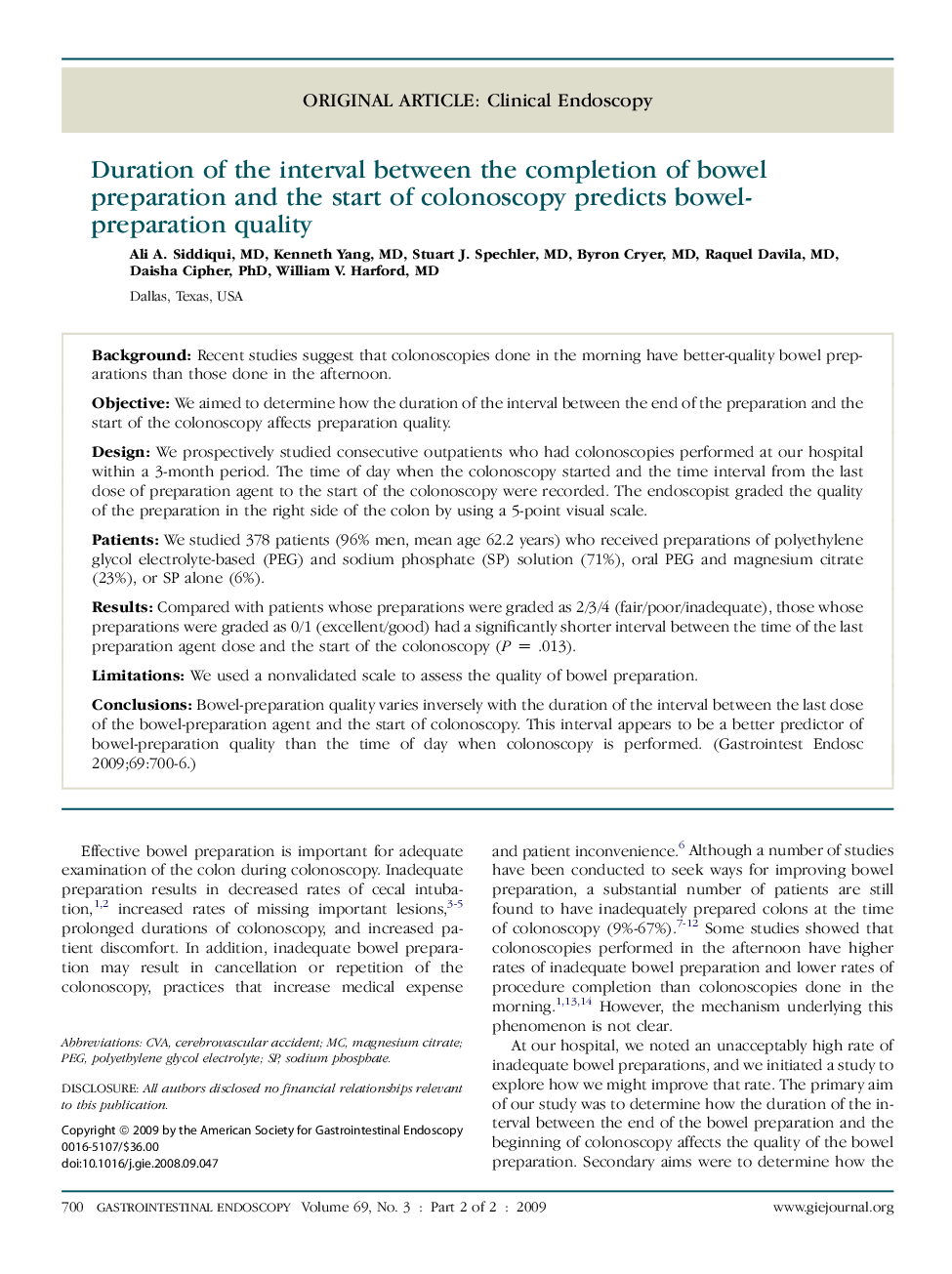| Article ID | Journal | Published Year | Pages | File Type |
|---|---|---|---|---|
| 3307682 | Gastrointestinal Endoscopy | 2009 | 7 Pages |
BackgroundRecent studies suggest that colonoscopies done in the morning have better-quality bowel preparations than those done in the afternoon.ObjectiveWe aimed to determine how the duration of the interval between the end of the preparation and the start of the colonoscopy affects preparation quality.DesignWe prospectively studied consecutive outpatients who had colonoscopies performed at our hospital within a 3-month period. The time of day when the colonoscopy started and the time interval from the last dose of preparation agent to the start of the colonoscopy were recorded. The endoscopist graded the quality of the preparation in the right side of the colon by using a 5-point visual scale.PatientsWe studied 378 patients (96% men, mean age 62.2 years) who received preparations of polyethylene glycol electrolyte-based (PEG) and sodium phosphate (SP) solution (71%), oral PEG and magnesium citrate (23%), or SP alone (6%).ResultsCompared with patients whose preparations were graded as 2/3/4 (fair/poor/inadequate), those whose preparations were graded as 0/1 (excellent/good) had a significantly shorter interval between the time of the last preparation agent dose and the start of the colonoscopy (P = .013).LimitationsWe used a nonvalidated scale to assess the quality of bowel preparation.ConclusionsBowel-preparation quality varies inversely with the duration of the interval between the last dose of the bowel-preparation agent and the start of colonoscopy. This interval appears to be a better predictor of bowel-preparation quality than the time of day when colonoscopy is performed.
